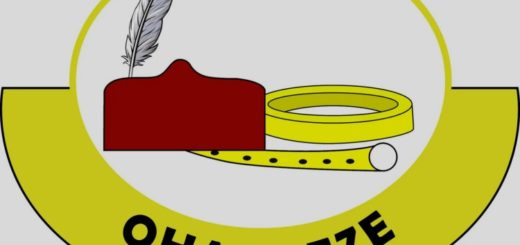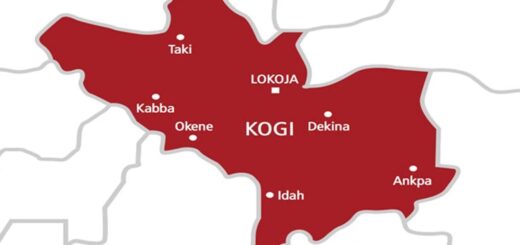Chrisland: Provide ambulance, defibrillators during sports, cardiologist tells schools
A consultant physician and cardiologist, Dr John Asekhame, has urged schools holding inter-house sports competitions to also make provision for ambulance services and heart resuscitation devices to effectively respond to emergencies and prevent loss of lives.
Asekhame, who works with Providence Multi-Specialty Hospital, Abuja, said school owners and administrators should not wait for emergencies to occur before planning for the health and safety of their students.
The cardiologist disclosed this in an exclusive interview with PUNCH HealthWise while reacting to the death of a 12-year-old female student of Chrisland International High School, Opebi, Lagos, Whitney Adeniran.
Whitney died last Thursday during the school’s inter-house sports activities.
The deceased’s mother, Mrs Blessing Adeniran, said her daughter was full of life when she left for school to participate in the competitions at the Agege Stadium.
According to her, the child had no health condition or sickness as of when the school bus picked her up for the event.
The grieving mother said she was told by the doctor on duty at the hospital, where her daughter was rushed, that from the look of things, Whitney suffered from cardiac arrest.
Blessing said her pain was that there was no proper first aid management, lamenting that there was nothing that was done for her daughter when she allegedly collapsed as she was brought to the hospital dead.
Speaking with our correspondent, Asekhame said beyond the provision of ambulances and heart resuscitation devices during sporting competitions by schools, it was also imperative to train their staff in cardiac resuscitation.
The physician, however, noted that only an autopsy can reveal the exact cause of Whitney’s death and also show what happened.
The cardiologist said, “Every school going for inter-house sports should make provision for ambulance services.
“If a governor is travelling, he carries an ambulance; if a president is travelling, he carries an ambulance.
“When you are doing a programme like this, you need to plan for the health and safety of everybody.
“They need to get health and safety specialists that would have looked at the field to ensure that everything is okay. At least get doctors and nurses that are on the ground, maybe paediatricians.
“When you have a gathering of more than 50 people, you should have an ambulance on the ground for an emergency even if you are organising an event in your office, you should make an arrangement at least to have an ambulance.
“Arrange for someone that is trained in Cardiopulmonary Resuscitation and also make an Automated External Defibrillator device available. A hospital should have been told that they are doing inter-house sports.”
According to him, CPR is a lifesaving technique that’s useful in many emergencies, such as a heart attack or near drowning, in which someone’s breathing or heartbeat has stopped while an Automated External Defibrillator is a device that gives a high-energy electric shock to the heart of someone who is in cardiac arrest.
Asekhame pointed out that everybody needs to be trained in CPR.
“If you see someone that collapsed in the United States, you will see someone that will come and be doing CPR on him or her until an ambulance comes to take the person to the hospital. But if it is in Nigeria, once somebody collapses, they will start pouring water on the person,” he said.
The cardiologist noted that though the exact cause of Whitney’s death is not known yet, she might have survived if there were people trained in CPR and facilities in place to resuscitate her when she allegedly collapsed before rushing her to the hospital.
Continuing, the physician said, “A lot of people don’t have appropriate training in cardiac resuscitation. I am sure that if that girl had collapsed on the field and somebody started doing CPR on her, maybe the outcome would have been different.
“So, a lot of our schools don’t have people trained to do CPR. This calls for all schools to go and learn how to do CPR and make Automated External Defibrillator devices available.
“If an Automated External Defibrillator device was handy or close by, it could have been used to resuscitate Whitney before going to the hospital. If the heart stops, you can use the device to shock the heart back. That is what should have been done.”
Asekhame urged school owners to protect the lives of their students and should not use death to learn a lesson.
The British Heart Foundation says a defibrillator should be used when a person is in cardiac arrest.
“CPR should be done until you can get a defibrillator. A defibrillator is a device that gives a high-energy electric shock to the heart of someone who is in cardiac arrest. This high-energy shock is called defibrillation, and it’s an essential part of trying to save the life of someone who’s in cardiac arrest.
“Defibrillators are normally located in workplaces and public spaces like airports, shopping centres, community centres, and train stations.”, the foundation said.
Meanwhile, the Lagos State Government has ordered a coroner’s inquest to ascertain the cause of death in the case of the late student.
The Lagos State Government has also ordered the temporary closure of Chrisland School, Opebi-Ikeja, following Whitney’s death.
The directive was contained in a statement on the Instagram page of the LASG on Sunday night.
Also, on Monday protesters were seen protesting in front of the school, with police officers also stationed around the school premises.













